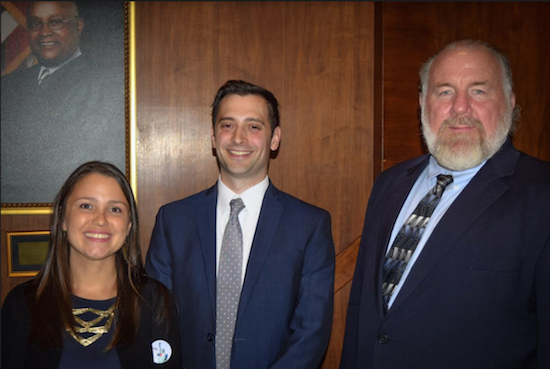Brooklyn Bar Association examines the blueprint for addressing liens at CLE

The Brooklyn Bar Association (BBA) kicked off a new season of Continuing Legal Education (CLE) courses with a seminar titled “The Blueprint for Addressing Liens” in Brooklyn Heights on Tuesday night.
The event was co-sponsored by the New York State Academy of Trial Lawyers and featured attorney Paul R. Loudenslager, of Precision Resolution out of Buffalo, and Frank Kilcoyne, a settlement consultant at JMW Settlements Inc. The pair lectured for two hours on Medicare, Medicaid, the Employee Retirement Income Security Act and other lien issues that cause holdups and delays of settlement funds.
“What we do on a daily basis is help plaintiffs’ attorneys deal with these liens that are stalling the settlement of their cases,” Loudenslager said. “The thing about liens is that every single type of health care coverage out there that is possible for your client. Every one of those different types of health coverages has a totally different area of the law that covers recovery rights. And every single one of those areas [is] always changing, so this whole area can get difficult pretty quickly.”

Brooklyn Boro
View MoreNew York City’s most populous borough, Brooklyn, is home to nearly 2.6 million residents. If Brooklyn were an independent city it would be the fourth largest city in the United States. While Brooklyn has become the epitome of ‘cool and hip’ in recent years, for those that were born here, raised families here and improved communities over the years, Brooklyn has never been ‘uncool’.